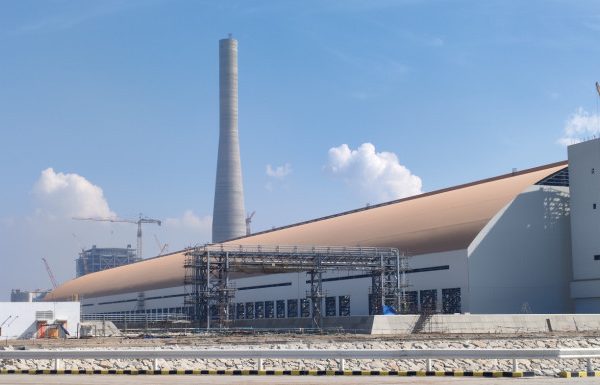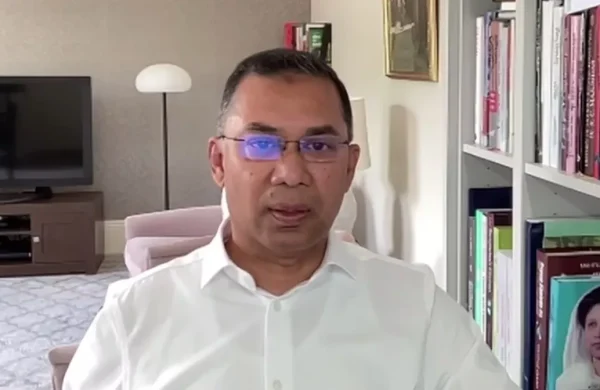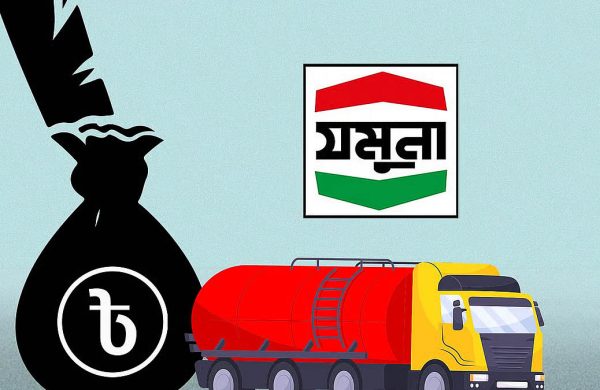Imported coal for Matarbari plant had stones – some weighing 30kg, probe finds
- Update Time : Sunday, August 31, 2025

TDS Desk:
A consignment of Indonesian coal imported to feed the 1200 MW Matarbari Ultra Super Critical power plant in March contained boulders – around 150 and some weighing up to 30 kilograms – finds the Power Division’s probe body.
These oversized stones were detected after unloading one-third of the coal from 11th consignment. The shipment carried 63,300 tonnes onboard MV Orient Orchid, which docked at the Matarbari jetty on 17 March this year.
Beside stones, the coal consignment was soaked in water and mixed with mud and reddish foreign substances that increased its weight.
The probe committee in its report flagged the contaminated coal as a serious threat to the power plant’s equipment.
Power, energy, and mineral resource adviser Fouzul Kabir Khan confirmed the findings of the probe committee.
Yes. I am aware of this matter. The supplier brought stone-contaminated coal, some stones weighing up to 30 kg, for the Matarbari power plant.
The contamination was so severe that the plant operator primarily rejected the entire consignment, but later accepted it on some conditions – separating stones and other foreign materials from coal at supplier’s cost, measuring excess water to calculate the actual weight of the coal and paying port overstay fee.
‘HEAVY RAIN TO BLAME’
According to the probe report, the Coal Power Generation Company formally sent a letter to notify the supplier – the consortium of Bangladesh’s Meghna Group, and Aditya Birla Global Trading (Singapore) Pte Ltd, a wholly owned arm of India’s Aditya Birla Group.
A team from the consortium visited the coal yard and acknowledged that the consignment contained oversized stones, mud, reddish substances, and coal heavily mixed with water, the probe report stated.
When the probe team pressed about the excessive water content in coal, the supplier attributed it to “heavy rain” in Indonesia during transport from the mine to the loading port.
When asked about oversized stones and other foreign materials, it gave no clear explanation and merely assured it would be “cautious in the future,” the probe report noted.
MEGHNA’S PUSH TO RECEIVE THE REJECTED COAL
Meghna Group and its partner urged the Coal Power Generation Company to accept the contaminated coal, promising to manually remove the stones, mud, and reddish materials from coal.
The Generation Company rejected the request, noting that of the 22,774 tonnes of coal unloaded from 63,300 tonnes, around 150 oversized stones were already found, with more likely in the remaining coal, and warned that using such foreign material–laden coal could damage the parts of the power plant.
PROBE COMMITTEE’S RECOMMENDATIONS
The probe committee directed the supplier to ensure future shipments are free of such contamination.
In a bid to check contaminated coal in future consignments, the probe committee instructed the Power Generation Company to collect coal samples at the jetty in the supplier’s presence and recommended to conduct third-party testing.
The probe report further added that a survey committee should examine whether the coal contains foreign materials or excessive water before unloading.
The probe committee also instructed the operator to take action in line with the supply contract agreement.
The Power Generation Company should determine if any damage occurred while unloading coal from the 11th shipment and should take appropriate action in this regard, the probe committee recommended.
When asked what action followed after the finding, Adviser Fouzul Kabir Khan said, “We asked the supplier to separate stones and other foreign materials from coal. The ship was stranded at the Chattogram Port and the supplier paid the overstay fee. This was a tough punishment.”
“A joint committee was formed to separate usable and unusable coal,” the adviser toldjournalist.
Asked if any monetary penalty will be imposed for such malpractice, he said: “The probe report hasn’t come to my desk yet. Once I have it, I will look into this matter.”
Meghna and Aditya Birla brought the consignment under a one-year contract to supply 3.5 million tonnes of coal for the Matarbari plant.
On 24 March, the power division formed a three-member committee to investigate the contaminated coal supply, led by Joint Secretary Mohammad Sanaul Huq (Development-1).
The supply of stone- and foreign-material-mixed coal came to the fore after a report was published by The Business Standard based on a leaked official letter of Coal Power Generation Company.
The Coal Receiving Committee was forced to halt unloading the shipment, as the coal’s extreme stickiness caused the conveyor belt and the jetty’s fixed screen to repeatedly get clogged and break down.


















